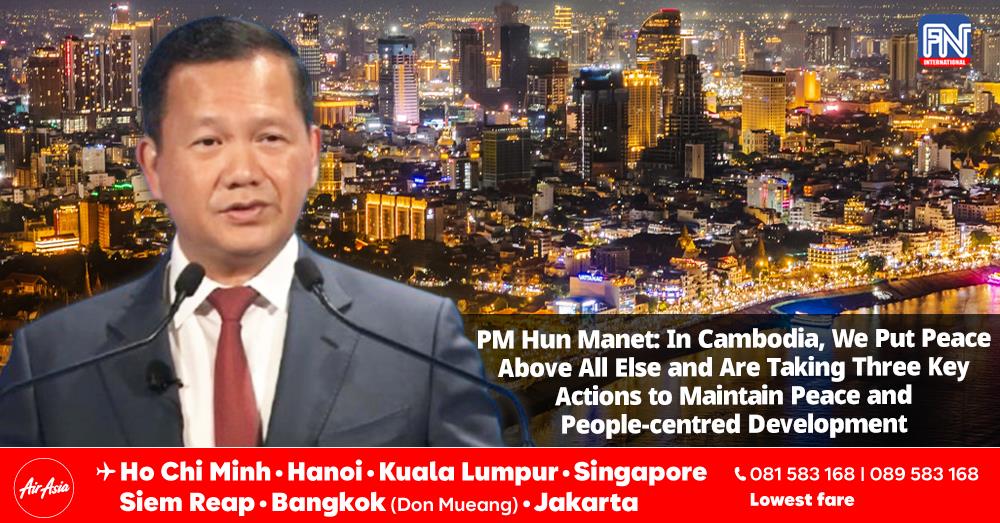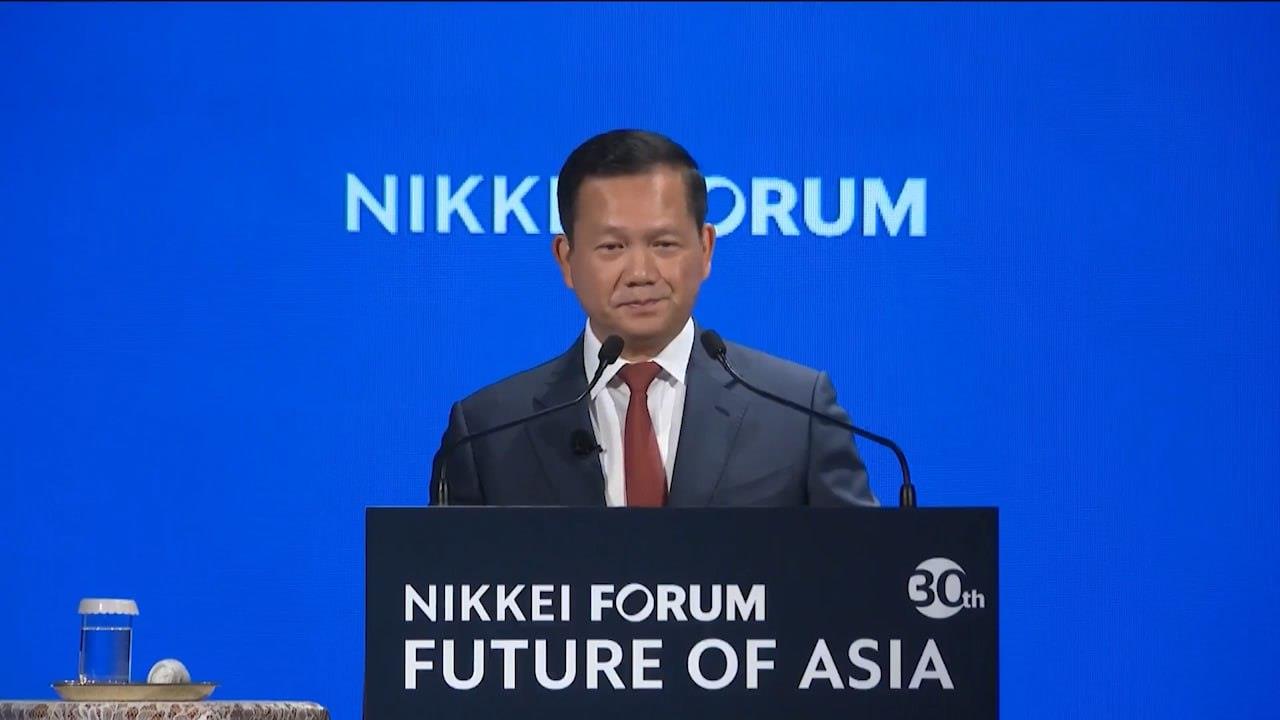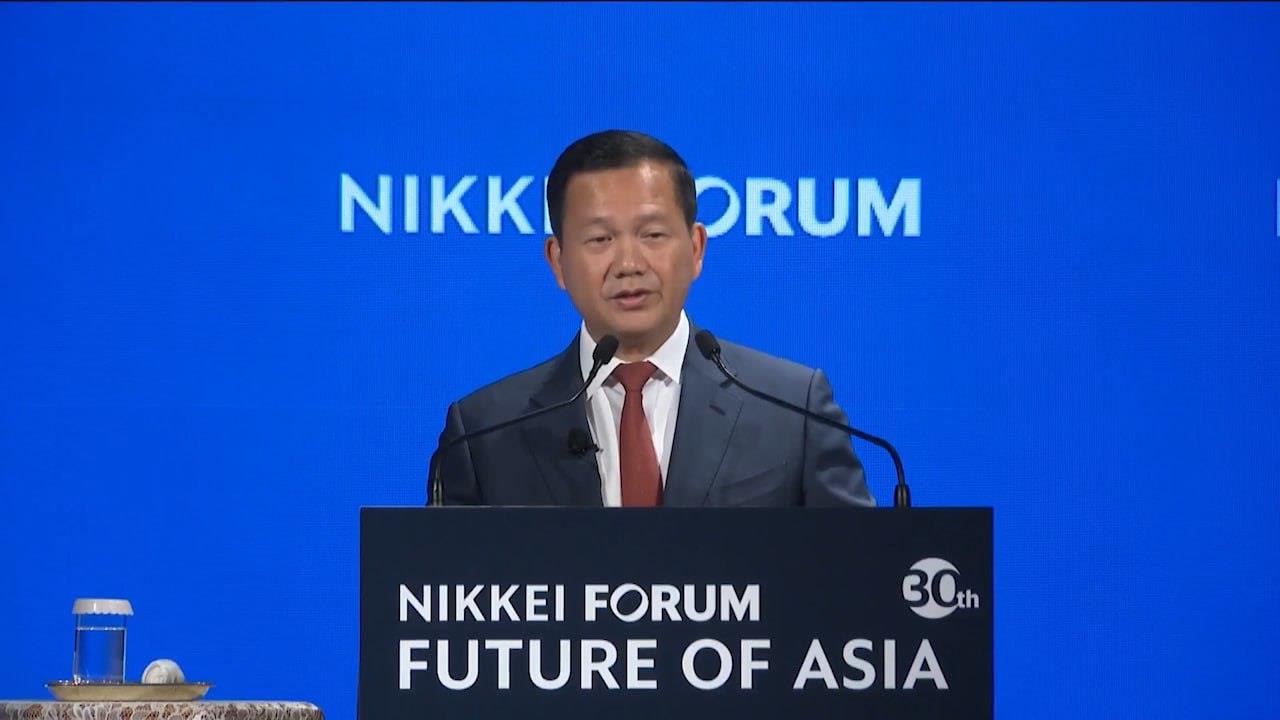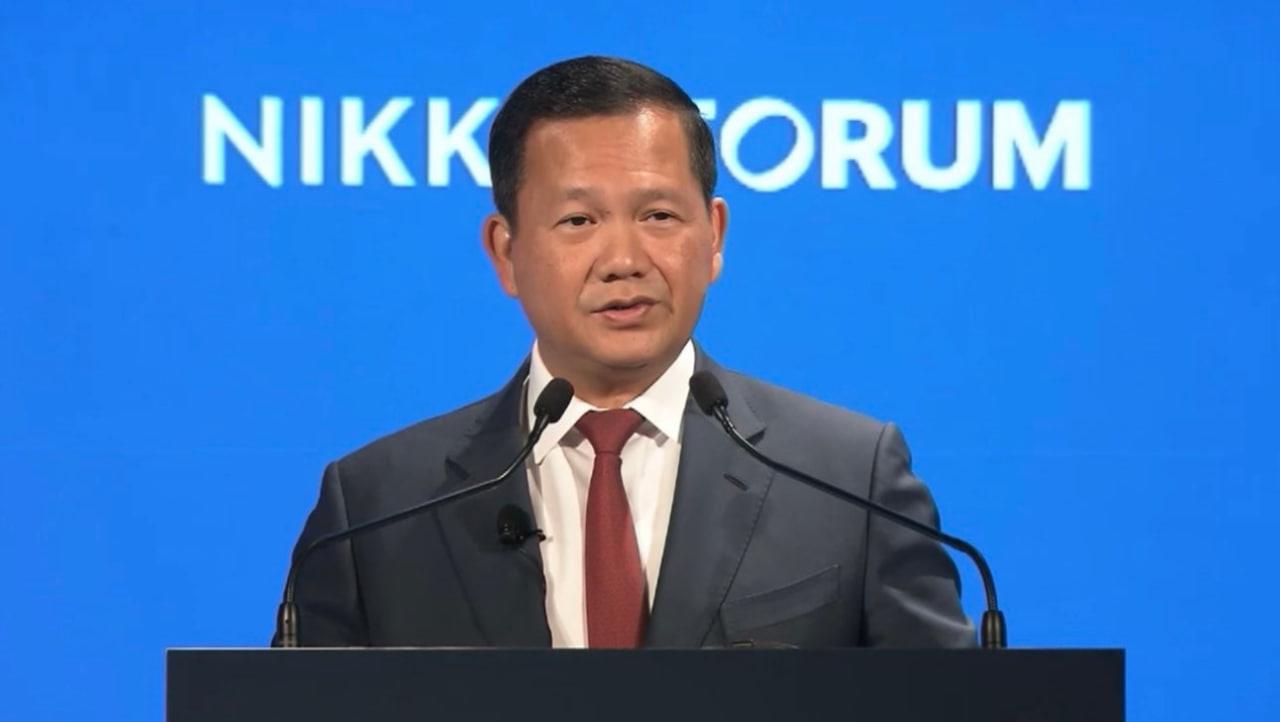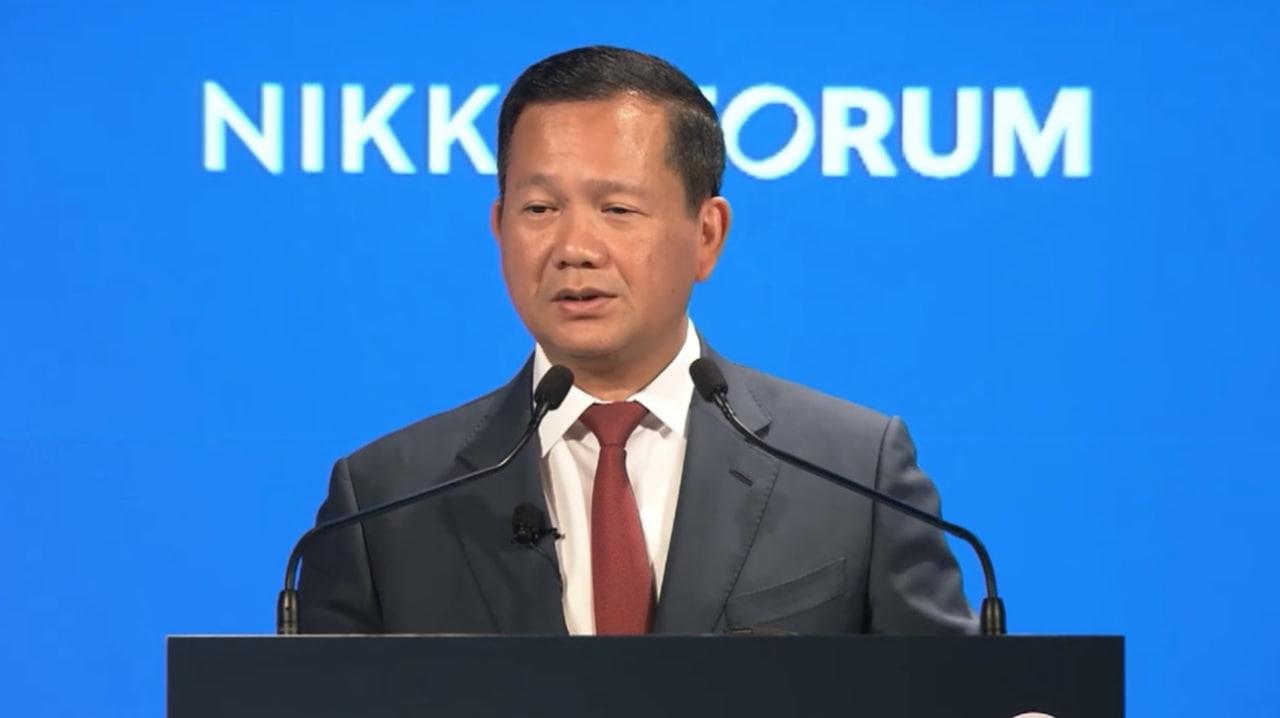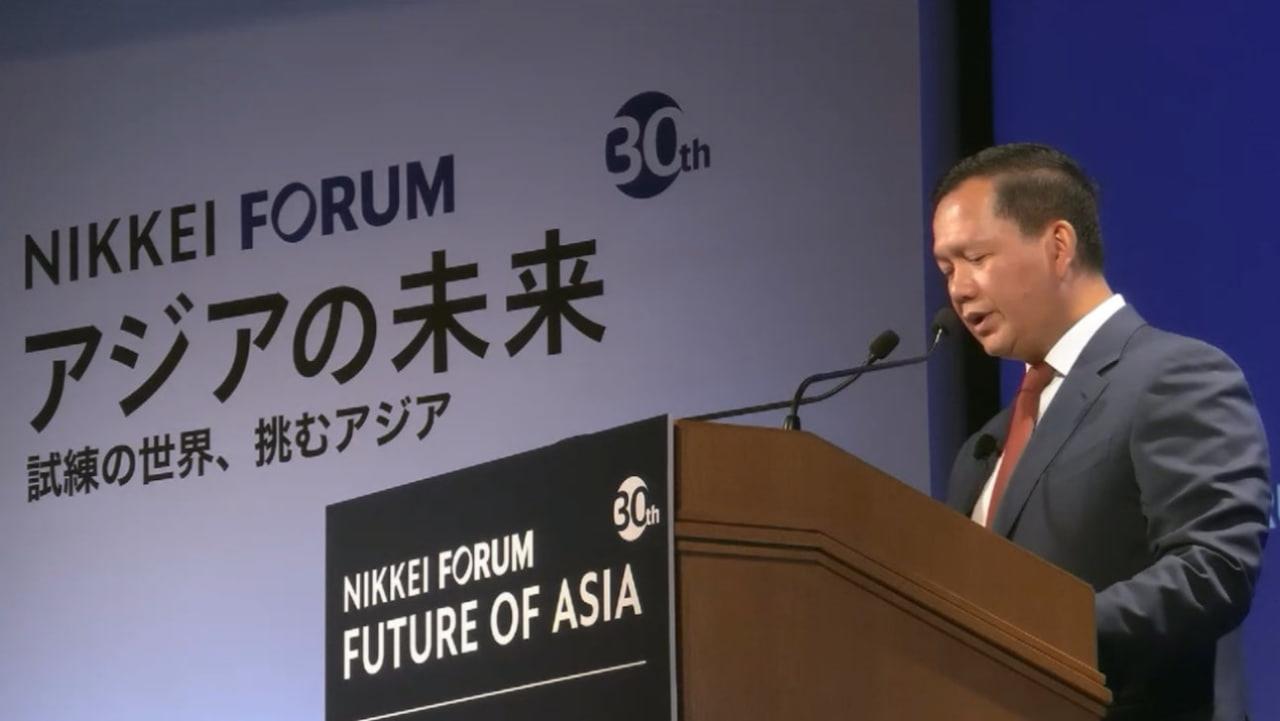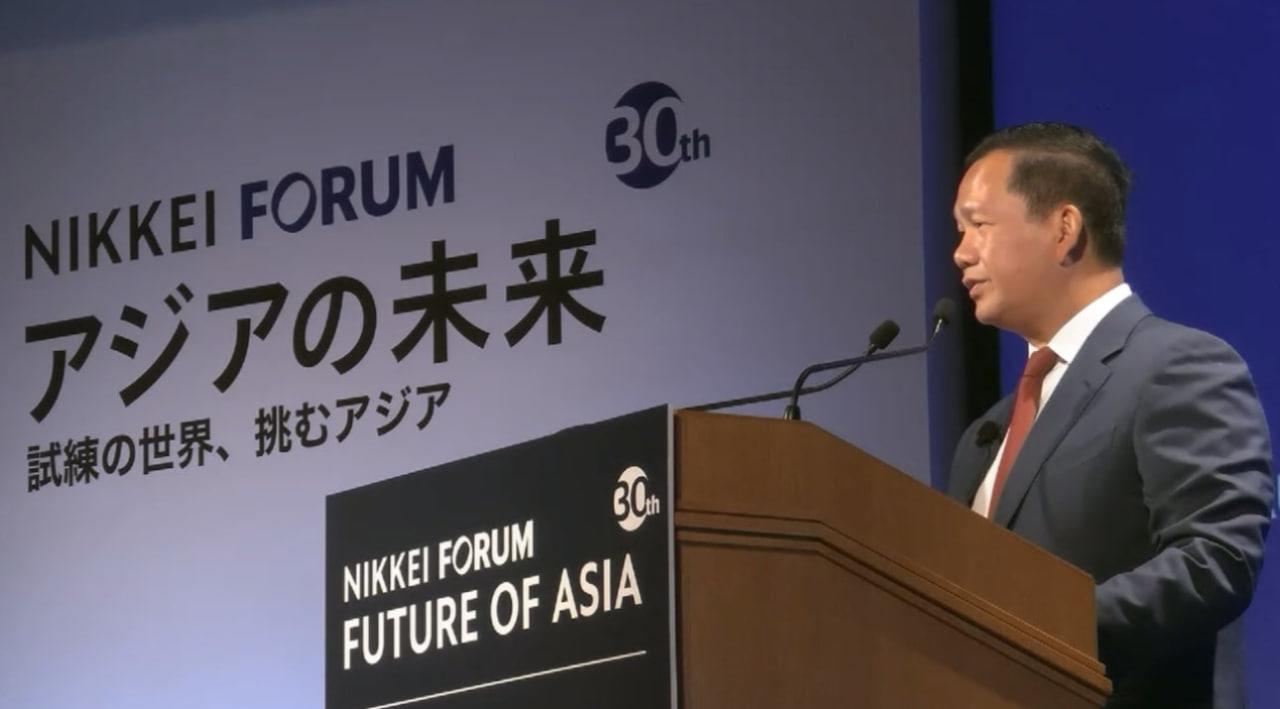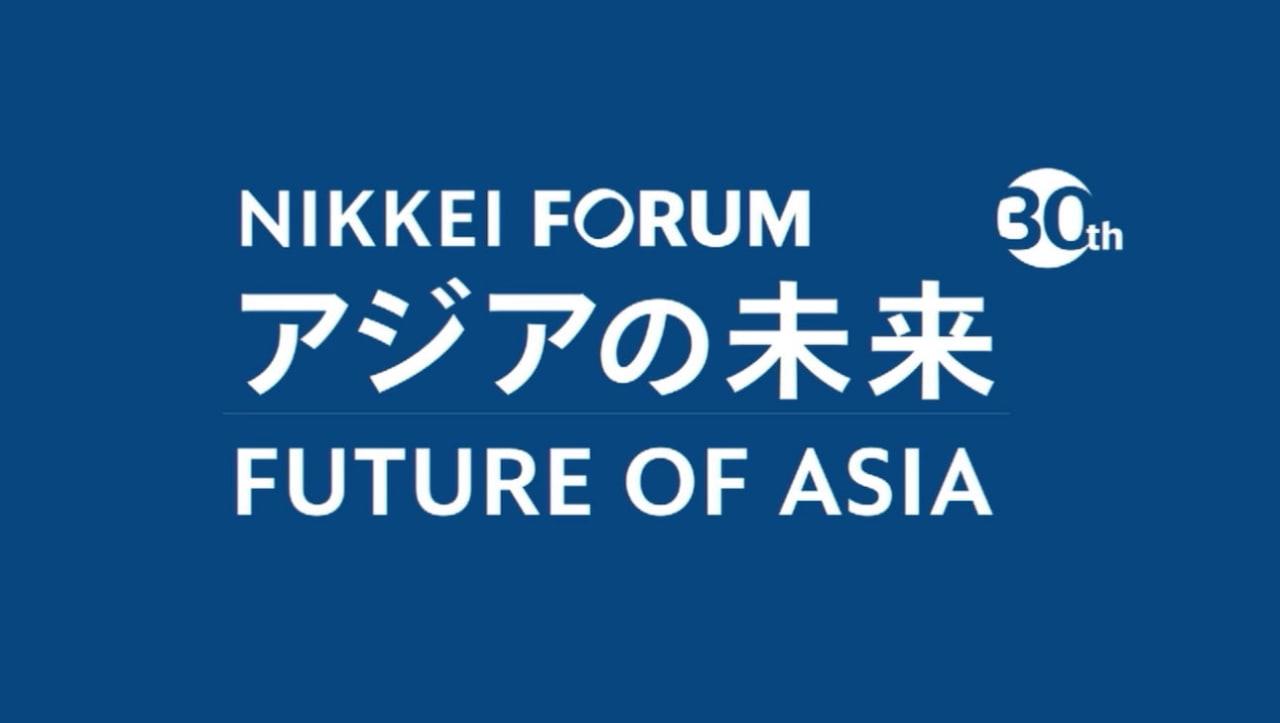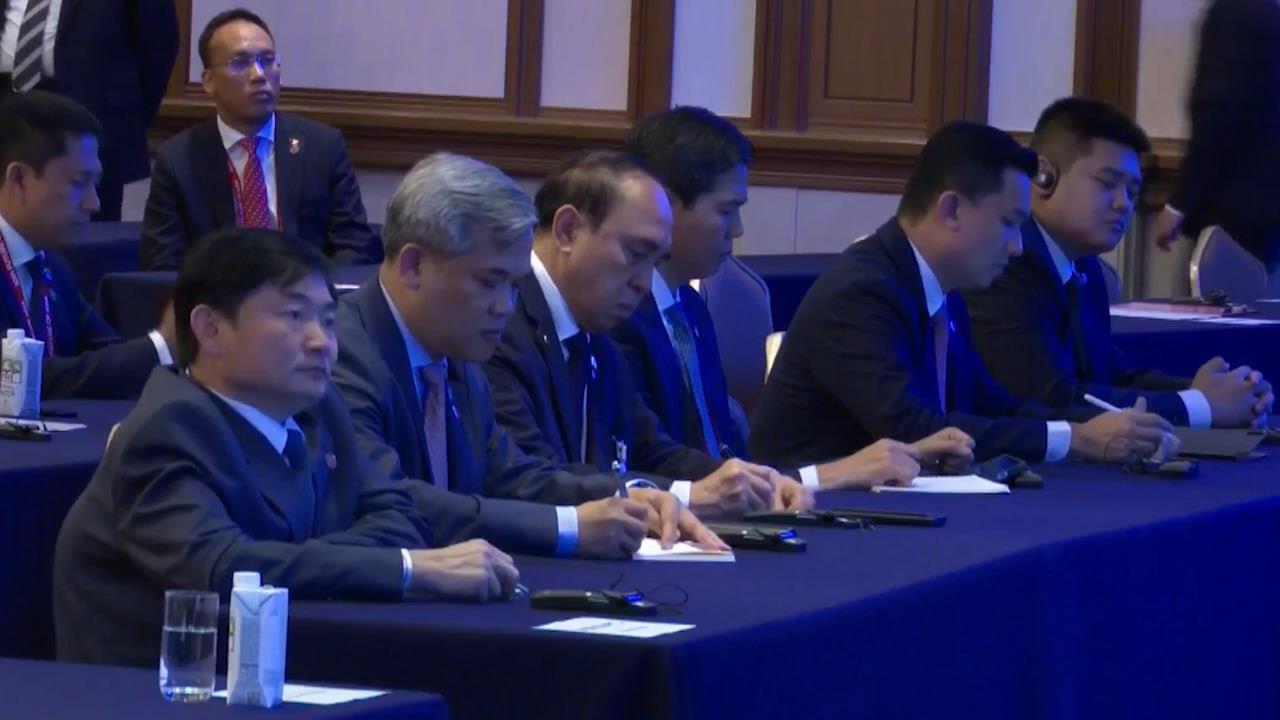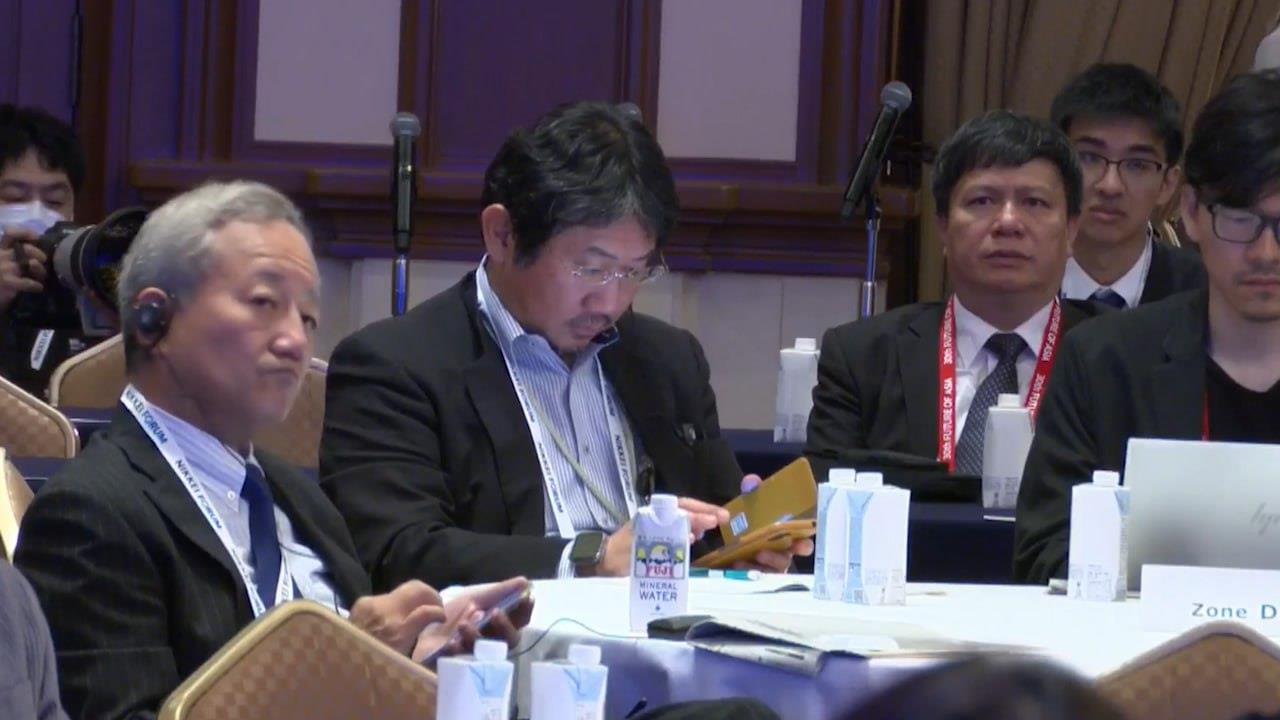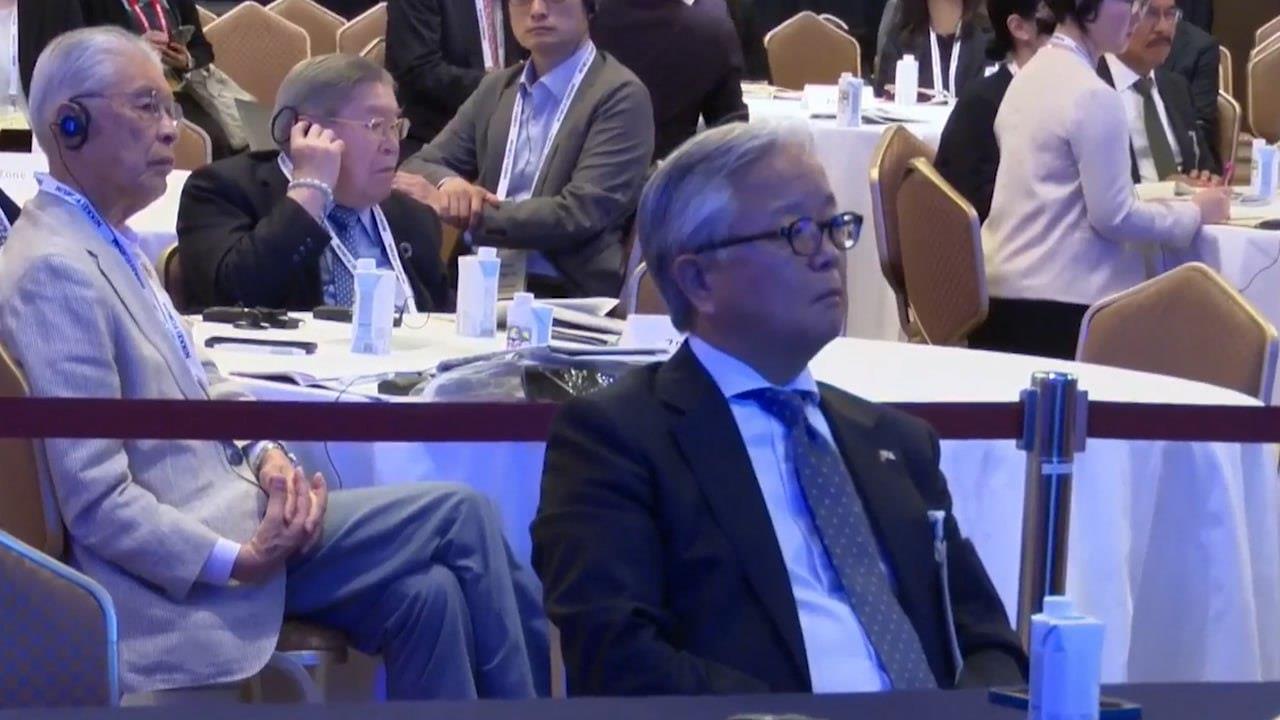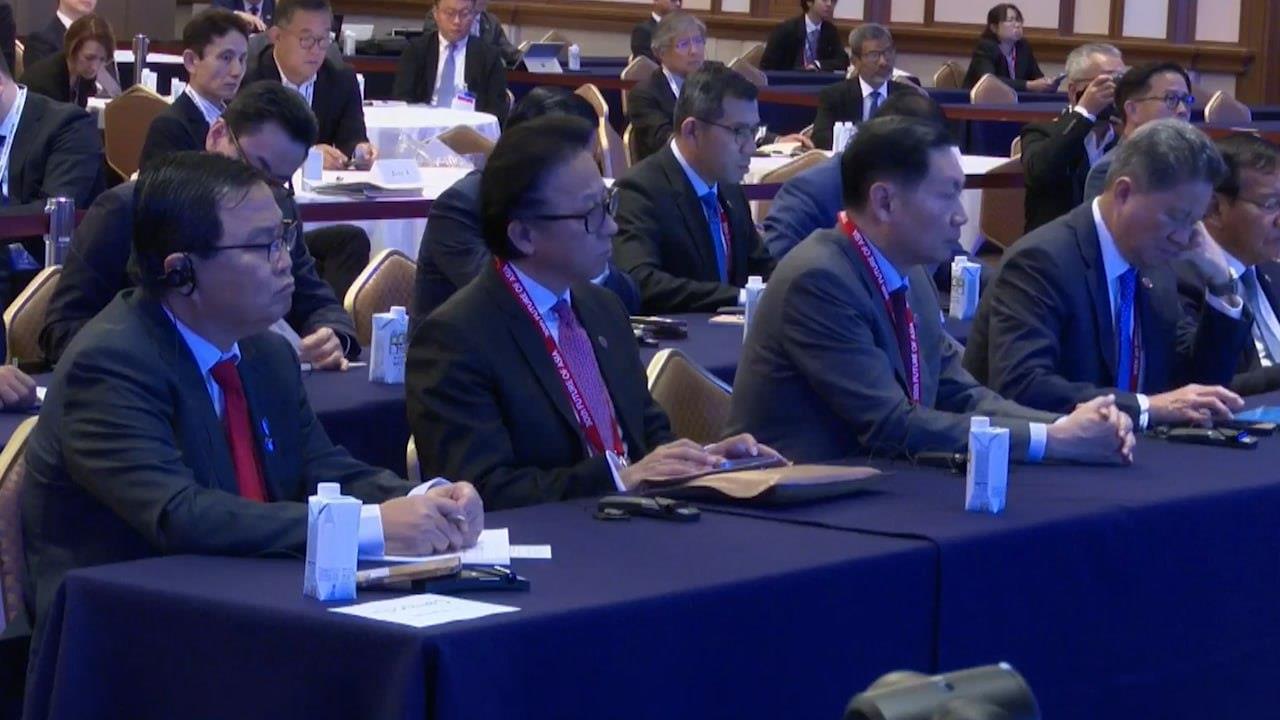(Tokyo): Cambodian Prime Minister Hun Manet shared three key lessons from Cambodia's experience, including the successful end of war and the ongoing efforts to preserve peace, which continue to this day.
The premier spoke on Friday (May 3) during the Nikkei Forum 30th Future of Asia under the theme “Asia's Challenge in a Turbulent World” in Tokyo, Japan.
Samdech Thipadei underscored, “In Cambodia, we put peace above all else. It took Cambodia 30 years to end our past war. Based on this experience, it is imperative to protect existing peace, rather than to restore the peace that has already been lost. Our leaders share common responsibility not to put their countries and people into a situation of war, and not to provoke wars or chaos that could jeopardise peace.”
Prime Minister Hun Manet further stated that in the current situation, Cambodia is taking three actions to maintain peace and people-centred development:
1. Sectoral industry readjustments. Trade war does not impact all sectors. For the impacted sectors, we should try to readjust their supply chain and mark good destinations. In the process, there would be people getting hurt, and the government is prepared to support the transition of the affected workers and industry.
2. Industrial recalibrations. There is always an opportunity within a crisis. The current situation offers a chance for Cambodia to upgrade its industrial capacity and promote more diversifications. Cambodia needs to move up the industrial ladders toward more skill-based and knowledge-based industries. In this connection, the government has implemented actively on the automotive and electronic sectors development roadmap to attract investment in these two sectors.
We have also set up special investment programmes in certain parts of the country, the coastal area in Northeastern regions, in order to promote industries that have competitive advantage, for example, agro-processing, to encourage backward linkage, and to attract higher value-added industries.
Moreover, we fully understand that industrial leaders in Cambodia need to make sure that more contents are originated from Cambodia. The ideas from a production should also come from Cambodia, and Cambodian industrialists should try to become producers and manufacturers too. Cambodian businesses, communities, must engage in the production to ensure industrial recalibrations, industrial linkage with global value chain, and eventually ensure the resilience of Cambodian industrial power and workforce.
Time to act is now, and the government will try to support as much as we can the gradual engagement of Cambodian-owned businesses into the production chain. To that end, we also need support from our government, from our foreign partners, because we are in the same boat in trying to give more substances to the label made in Cambodia.
3. Revitalising multilateral trade and deepening regional integrations. Samdech Thipadei highlighted on the opportunities to deepen existing bilateral and multilateral free trade agreements, as well as to explore new ones. Under pressure, countries will see their unity strengthened to withstand the effects of tariff. Cambodia is striving to proactively position itself as an attractive and stable destination for investors, leveraging various free trade agreement, the Regional Comprehensive Economic Partnership, or RCEP, and our strategic tie to major global market.
=FRESH NEWS
